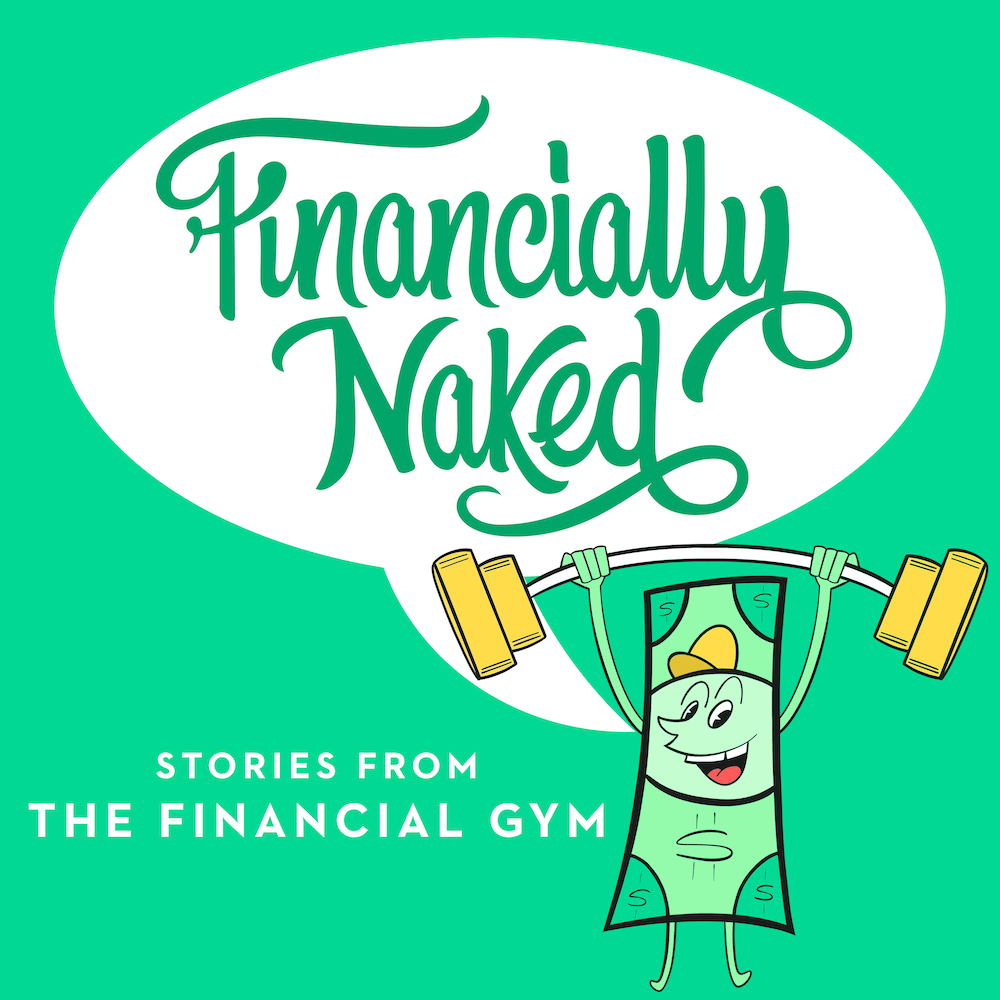Overcoming Debt
Overcoming Debt with Columbus and Kylie
On this episode of Financially Naked: Stories from The Financial Gym, our host is Columbus McKinney, DC-based Financial Trainer and entrepreneur, and he is joined by his colleague, Kylie, to discuss overcoming debt.
Podcast Notes
A lot of clients come in with credit card debt that ranges from a couple thousand dollars to tens of thousands of dollars, and they tend to be hesitant to talk about it because there is a lot of shame. You shouldn’t feel bad if you have credit card debt, because most people don’t receive education about it.
Your credit utilization should be 35% or less. Even though you can use the full amount, you will have a better credit score if you are using 35% or less.
Columbus learned about credit utilization early on. He initially looked at his credit card as extra money in his pocket. His first card was a secured card, and his second credit card had a $5,000 credit limit. When it was maxed out and he needed to get another credit card because of an emergency, he realized the stress around credit cards.
Kylie sees vet bills, car maintenance, vacations, and birthdays on credit cards. These are things you can budget for ahead of time. Columbus needed to detach himself emotionally from his money in order to pay off the credit cards.
Get rid of the regret. It has already happened, so focus on fixing it and paying it off. Look at it as just another bill you need to pay. It takes time to get over it. It isn’t an overnight thing, but this is where accountability partners come in.
Keeping himself occupied with what he already had helped Columbus. Every break was not an excuse to travel somewhere, and if something new came out, he didn’t need to get it on the first day. He picked up new skills along the way that were free and he found cheap hobbies.
Columbus taught himself the keyboard. He was already a gamer, so he just played the games he already had, and he worked to get his friends onboard with not going out all the time.
When you want to start building credit or rebuild credit, start small. You can start with a secured credit card and put one small recurring charge on it and set it to autopay. You don’t need to use your credit card all of the time either daily or monthly. Once you get used to paying off the card monthly, then you can add your regular groceries and pay it off every month. Start with what you already pay.
If you use your credit card responsibly, you may find that your creditor will increase your limit automatically. There is nothing wrong with getting a credit card, but do your own research first. Using a credit card is a great step in building your credit.
If you have credit card debt, make sure you are making your minimum monthly payments on them. Then, look at your interest rates on all of your debt and decide on using either the debt avalanche or debt snowball method. The avalanche saves you interest, but the snowball gives you more momentum and more quick wins.
When you get discouraged, rely on your trainer to keep your spirits up and surround yourself with people who will congratulate you along the way.
When he was paying off his debt, Columbus was aggressive and didn’t save. He realized that by not setting money aside for emergencies, it ended up back on the credit card. Your emergency fund is an insurance policy against getting back in debt. It might take longer, but your savings should go up as your debt goes down.
If you’re interested in working with a Certified FinancialTrainer like Kylie or Columbus to work on getting out of debt, click here to get started!

